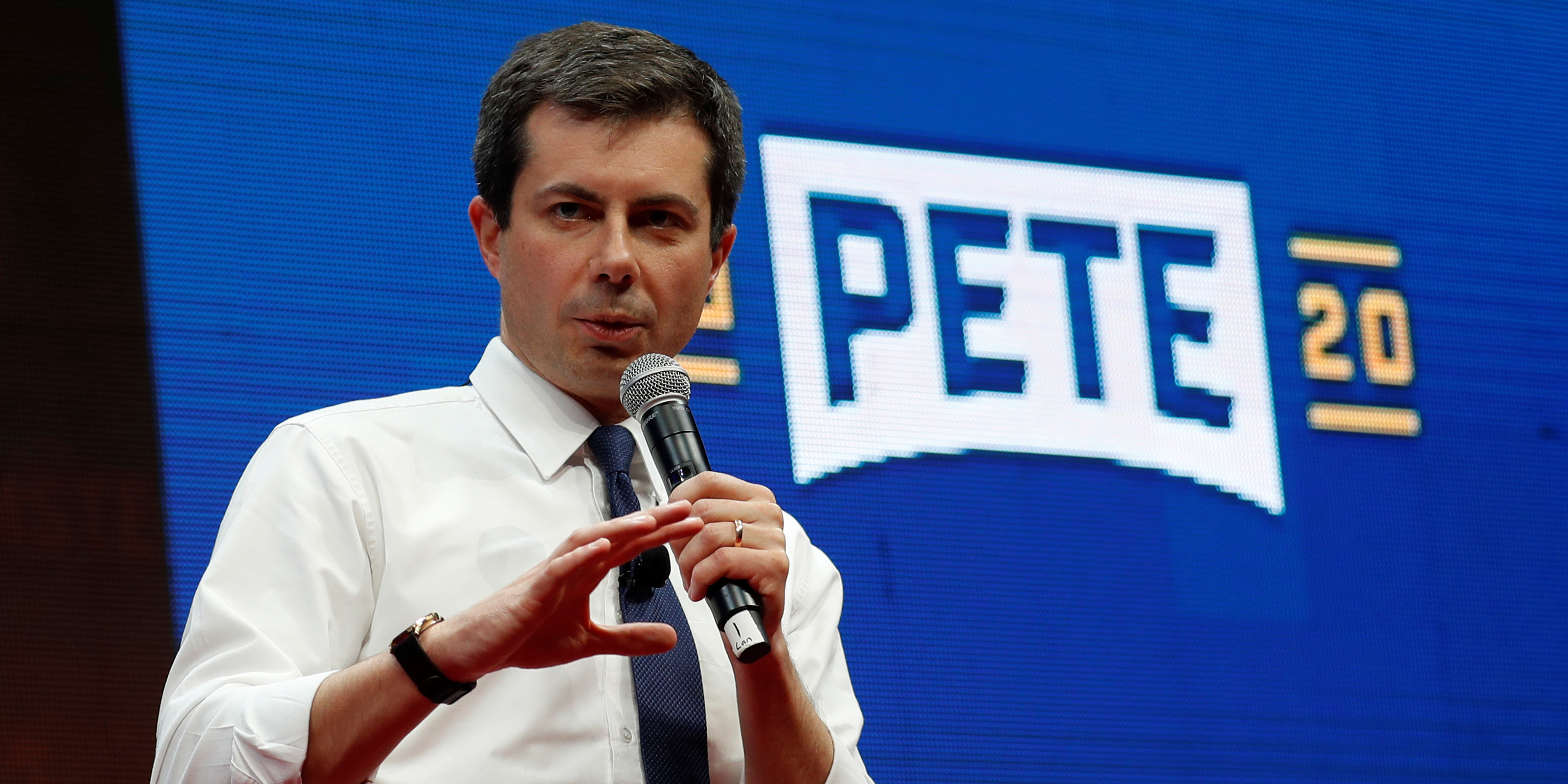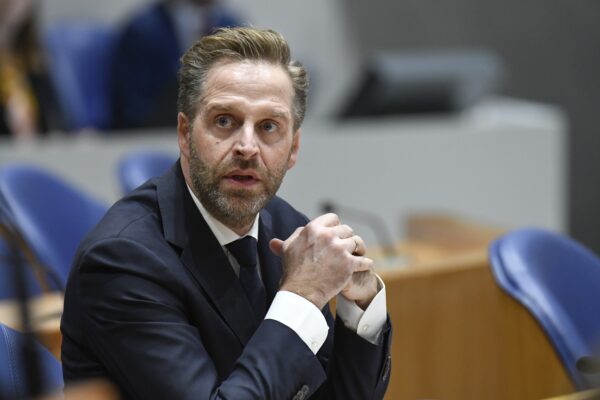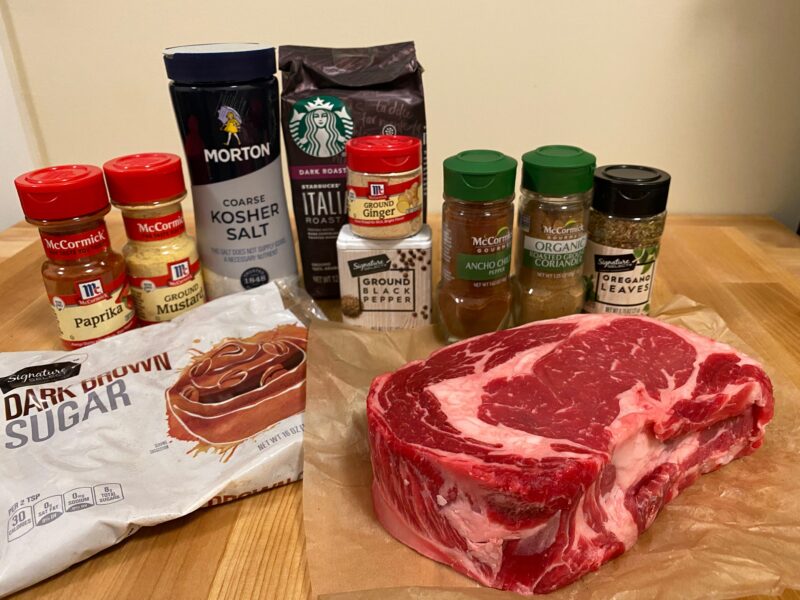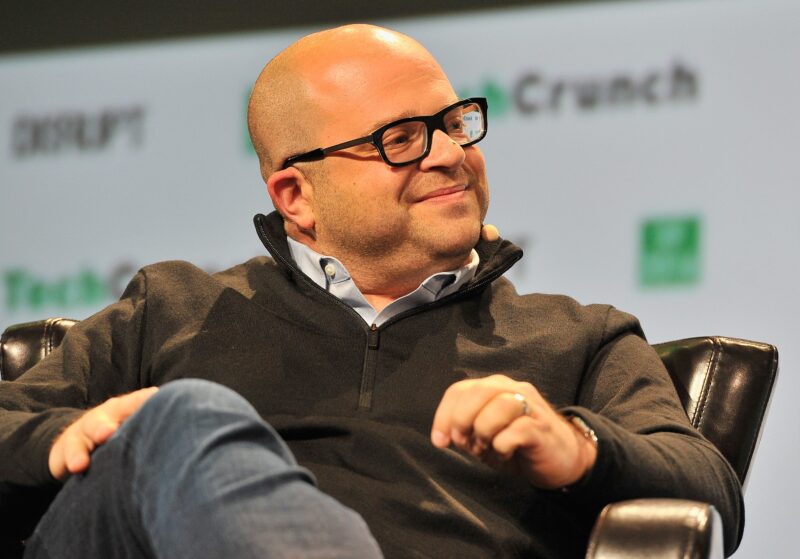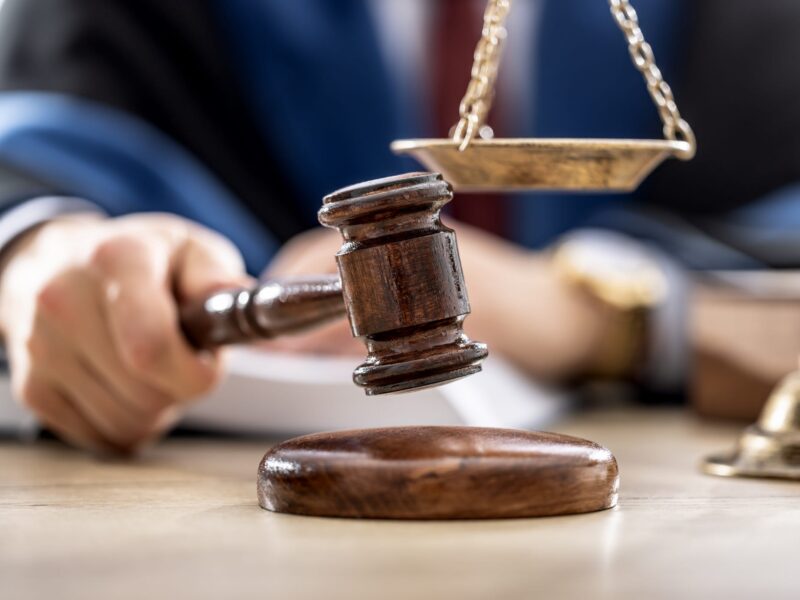- The Democratic Party has been criticized over the lack of diversity among its remaining 2020 candidates. And yet among the frontrunners is an openly gay man, Pete Buttigieg.
- Insider followed Buttigieg’s campaign as it held events targeting black voters in South Carolina. For all the current focus on identity, the fact that he’s an LGBTQ trailblazer was an afterthought.
- Among the black supporters Insider spoke with, what they liked best about Buttigieg is his message of unity, his pragmatic centrism, and his “Douglass Plan” – a comprehensive set of policy proposals tackling a host of issues affecting black Americans.
- Rep. Anthony Brown, the only member of the Congressional Black Caucus to endorse Buttigieg, told Insider: “So many of you in the media are talking about identity, I think that space is being filled.”
- Visit Business Insider’s homepage for more stories.
SOUTH CAROLINA – Identity is at the forefront of many conversations about the 2020 Democratic presidential primary. The party has faced criticism over several candidates of color failing to gain polling traction, with disadvantages for minority candidates to raise campaign funds and heavily white early voting states cited as possible culprits for the lack of diversity.
And yet among the frontrunners is an openly gay man, former South Bend, Indiana Mayor Pete Buttigieg. Sure, he’s white, Christian, and centrist, but he’s the first LGBTQ candidate to make a viable run for the presidency.
Buttigieg is comfortable on the trail referring to his husband, Chasten, often in the context of the substantial student loan debt they share. But that’s pretty much where he leaves mention of his identity as a gay man.
He’s more likely to talk about his faith, his military service, or his mostly center-left platforms. That also goes for Buttigieg’s supporters, who are more keen on touting what they describe as his authenticity, lack of cynicism, and his “play nice” ethos as a campaigner.
Insider followed Buttigieg's campaign last week as it held events targeting black voters in South Carolina.
We spoke with avowed supporters, voters who consider Buttigieg a possibility, and campaign surrogates about what it means for an openly gay candidate to be campaigning in a state where gay marriage was supported by a mere 20% of adults in 2004.
Without fail, Buttigieg's stature as a historic figure in electoral politics never came up, unless we asked.
Buttigieg makes his pitch to black voters in South Carolina
A recent Fox News poll shows Buttigieg placing a distant fifth in South Carolina, pulling in just 4%. Among black voters in the Palmetto state, he was polling at around 2%.
"In South Carolina, we do the big rally-type events. And I'll be honest, it's mostly white folks showing up," Buttigieg said during a live recording of the "On One with Angela Rye" podcast at Claflin University, a historically black school in Orangeburg.
Rye asked, "In South Carolina, does that scare you?"
Buttigieg replied, "Yeah, because I'm happy for the folks who are showing up, but in order not just to win, in order to deserve to win, I've got to be speaking to everybody again, especially knowing that my party has depended on black voters."
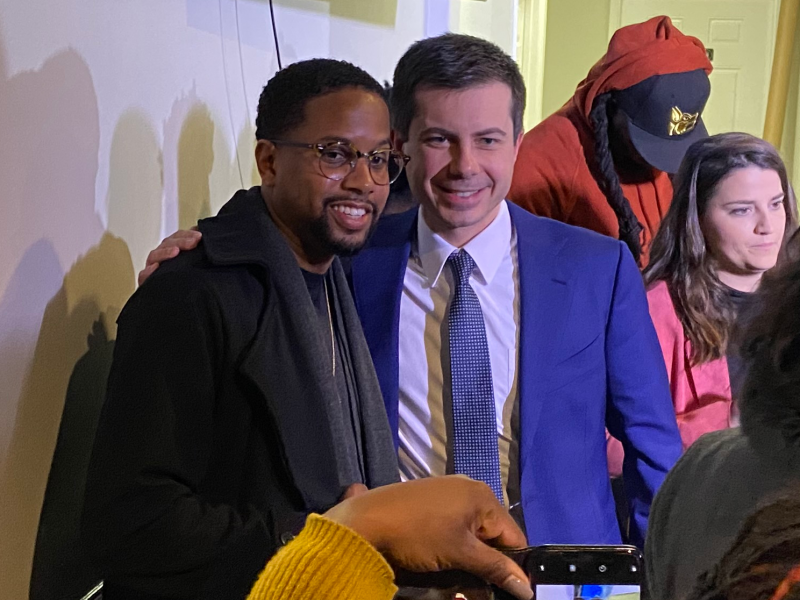
Among the reasons political prognosticators have given for why Buttigieg polls so terribly with black voters in South Carolina: a string of controversies involving alleged police abuses while he was mayor of South Bend, Indiana; a lack of meaningful outreach, and what some have characterized as homophobia in the community.
The latter concern was amplified by a focus group of black voters conducted by Buttigieg's campaign last July, which found some of the participants "deeply uncomfortable" with even discussing Buttigieg's sexuality.
Just 27% of black voters nationwide say they would be satisfied with Buttigieg as the Democratic nominee, according to Insider data. But the apparent reasons for why he's not polling well among South Carolina blacks have little to do with his identity.
First, most black voters still don't know who he is. The even-more-from-out-of-left-field candidate Andrew Yang has greater name recognition than Buttigieg among black voters nationwide, despite having overall greater name recognition and out-polling Yang almost everywhere, Insider data shows.
Second, Buttigieg is running as a centrist, and his main rival in the Democrats' center lane is former Vice President Joe Biden. Eight years as the right hand of America's first black president still carries a lot of cache for Biden, particularly among African-Americans in South Carolina.
Biden is dominating among both among South Carolina voters (36% to second-place Tom Steyer's 15%) and South Carolina African-American voters (43% to Steyer's 17%).
Buttigieg supporters say he reminds them of Obama
Of the black voters we spoke with who described themselves as Buttigieg supporters or at least open to voting for him, nearly all cited his "Douglass Plan" - a comprehensive set of policy proposals tackling a host of issues affecting black Americans, including criminal justice, health care, and income inequality - as something they find compelling about him as a candidate.
What didn't come up as a positive or a negative aspect of his candidacy? His sexuality.
Krystin White, 27, a black artist and Buttigieg supporter from Columbia, SC, told Insider that having grown up witnessing what her gay friends in the deep south had to go through, she expected that Buttigieg's sexuality would be less than warmly received. But it wasn't the case.
She then recounted a story where she convinced her mother to switch her allegiance from Biden to Buttigieg. It wasn't until later that her mother found out Buttigieg was gay, which turned out to be information that didn't much matter to her.
White said, "The assumption that blacks, especially blacks from the South, are against homosexuality or that they turn their nose up about it is … I wouldn't say it's false. It's just inaccurate, there's not as many of us that are bothered by it than people think."
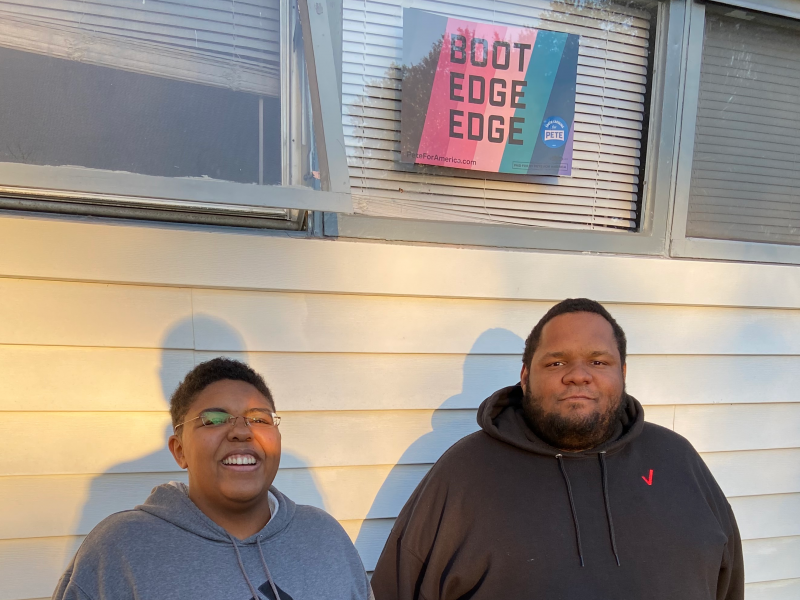
A common refrain I heard from black Buttigieg supporters was that the former mayor reminded them of former President Barack Obama when he first arrived on the national political scene.
There are obvious and numerous differences between the two. But considering the fresh face, the "no drama" public persona, the charm, the intellectual pedigree, the message of unity and change - it does sound a little familiar.
Obama also took plenty of hits from the progressive flank of his party, after governing as a fairly centrist president. Buttigieg, as a presidential candidate, is taking most of his shots from the left flank, too.
White's partner, Emery Benson, a 31-year-old telecommunications worker, said when he's trying to convince people to vote for Buttigieg the most common criticism he runs into is, "Pete's a corporate shill. You know, since he worked for McKinsey. That he's not really someone who was willing to do what he says he's trying to."
Benson added that some black voters he's tried to sell Buttigieg to as candidate fear he'd be too mild-mannered to "fight at Trump's level."
Everyone's talking about identity, but it's not winning votes
Prior to Buttigieg's event at Claflin University, Insider spoke with Rep. Anthony Brown of Maryland, to date the only member of the Congressional Black Caucus to endorse Buttigieg. We asked him: What's the right way for 2020 Democrats to talk about identity?
"So many of you in the media are talking about identity, I think that space is being filled," Brown replied with a laugh.
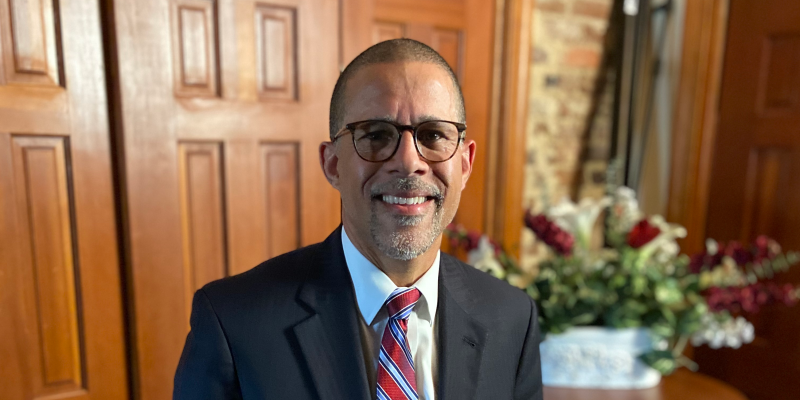
"I ran for governor of Maryland, and I was the first African-American who was a major party nominee," Brown added. "There was a lot of commentary about my race, about my background. When asked, I talked about that and what it meant to me and how it shaped my views and things like that. But I didn't necessarily proactively campaign by pointing out that I would be the first African-American elected governor," he added.
Brown continued: "Let's say I'm Pete talking, there's no denying that I am an openly gay man, but this campaign is not about me as an openly gay man. This is about you who are: gay or straight, black or white, male or woman, farmer or manufacturer, urban dweller or suburban. This is about you and your families and what I'm going to offer, what I'm going to fight for as president."
Buttigieg probably won't win South Carolina or the black vote.
But regardless of how he places when all the Democratic delegates are allotted, Buttigieg has blazed a trail: He's made being an openly gay presidential candidate no big deal.
